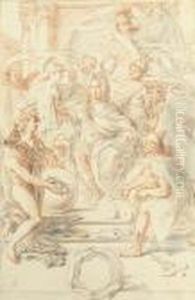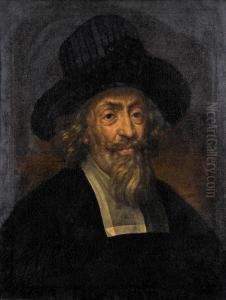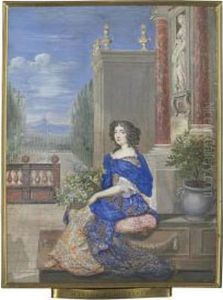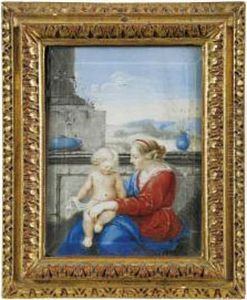Joseph Ii Werner Paintings
Joseph Werner, also known as Joseph Werner the Younger to distinguish him from his father of the same name, was a Swiss painter born on June 23, 1637, in Bern, Switzerland. He came from a family of artists and was notably one of Europe's most accomplished painters during his lifetime. Werner's early education in art was under the guidance of his father, Joseph Werner the Elder, who was also a painter. His talent became apparent at a young age, and his father played a crucial role in his initial training.
In 1651, Werner embarked on a journey that was quite common for artists during his time: he traveled to Italy to study the masters of the Renaissance and Baroque periods. This journey significantly influenced his artistic development, exposing him to the works of great Italian artists and the vibrant cultural scenes of cities like Rome and Venice. His stay in Italy, which lasted until 1654, helped him to refine his skills, particularly in fresco and tempera painting, and he began to gain recognition for his work.
After his return to Switzerland, Werner's reputation continued to grow, and he received numerous commissions from both ecclesiastical and secular patrons. His skill in creating intricate historical and mythological scenes was particularly appreciated. However, his ambitions and the desire for greater recognition led him to move to Paris, and later to Germany, where he worked for various courts. In Paris, he was influenced by the French Baroque style, and during his time in Germany, he served as a court painter, which significantly enhanced his fame and allowed him to secure more prestigious commissions.
One of Werner's most significant contributions to the art world was his role as a teacher. In 1687, he was appointed as the director of the Academy of Arts in Berlin, a position he held until his retirement. Through this role, he influenced a generation of artists, imparting the skills and knowledge he had acquired throughout his career. Werner's teaching philosophy emphasized the importance of drawing from life and studying the works of the past masters, a reflection of his own education and experiences.
Joseph Werner's work is characterized by its elegance, attention to detail, and the vibrant use of color, which was admired during his lifetime and continues to be appreciated today. Although he is not as well-known today as some of his contemporaries, his contributions to the development of Baroque art in the German-speaking regions and his influence as a teacher make him a significant figure in the history of art.
Werner lived a long and productive life, continuing to paint and teach until his death on January 28, 1710, in Berlin, Germany. His legacy is preserved in the collections of various European museums, where his works continue to be studied and admired for their beauty and historical value.












